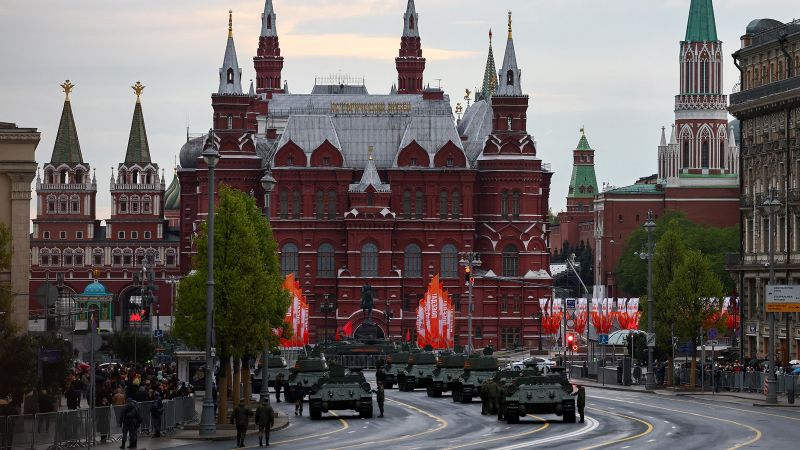Putin Celebrates Victory Day Amid Global Tensions and Criticism

CNN — Russian President Vladimir Putin commemorated Russia’s Victory Day on Friday, a significant occasion in Russian history, surrounded by a select group of allied world leaders. This year marks the 80th anniversary of the annual celebration that honors the Soviet Union’s victory over Nazi Germany in World War II. A large parade took place at Moscow’s iconic Red Square, featuring thousands of troops marching in a display of military might.
Victory Day, held every May 9, is a solemn remembrance of the estimated 25 million to 27 million Soviet soldiers and civilians who lost their lives during the brutal conflict. However, since Russia's full-scale invasion of Ukraine in February 2022, the significance of this day has shifted dramatically. Putin has increasingly used the occasion to promote a narrative that frames the current conflict with Ukraine as a continuation of the Great Patriotic War, a term that resonates deeply with Russian sentiments and national identity.
While previous celebrations during the last three years were notably subdued, this year’s event showcased a more vibrant spectacle. Notable international figures such as Chinese leader Xi Jinping and Brazil’s Luiz Inácio Lula da Silva were among the high-profile guests attending the parade. This guest list represented a significant upgrade compared to the limited attendance of the previous year, which included only delegations from post-Soviet states, Cuba, and a handful of other nations.
In the lead-up to the commemorative events, Putin announced a three-day unilateral ceasefire to coincide with the anniversary. However, this declaration was swiftly rebuffed by Ukraine, which accused Russia of using the ceasefire as a tactical maneuver to facilitate the parade's proceedings. Andriy Yermak, the head of the Ukrainian Presidential Office, stated, “The Kremlin’s proposal for a three-day truce is not about peace, but about ensuring the safe conduct of the parade in Moscow. This is political manipulation.”
Ukrainian officials argued that if Russia truly sought a ceasefire, it should agree to a US-backed proposal for a 30-day truce, which Ukraine had already accepted. Despite multiple high-level discussions between Russian officials and their American counterparts, Russia has consistently rejected this offer. Moreover, reports from Kyiv indicated that Russia had violated the terms of the ceasefire hundreds of times since its announcement, with several civilian casualties resulting from airstrikes on Ukrainian cities.
As for the parade in Moscow, Ukrainian authorities expressed indifference to its proceedings, stating that they would not be held responsible for any events occurring within the territory of the Russian Federation during wartime. President Volodymyr Zelensky emphasized that Ukraine would not create a “pleasant atmosphere” for Putin’s public appearance on May 9, effectively rejecting any notion of cooperation.
In a show of defiance, in the days leading up to the parade, Ukraine executed several drone attacks targeting Moscow. In response, authorities in the Russian capital temporarily shut down all four of its airports on Wednesday, a move that highlighted the heightened tensions and security concerns surrounding the festivities.
Additionally, neighboring Baltic states—Estonia, Latvia, and Lithuania—complicated matters further by closing their airspace to diplomatic flights heading to Moscow. This led to significant logistical challenges for pro-Kremlin officials, who were forced to reroute their flights to avoid the Baltic regions. The Latvian Foreign Ministry issued a statement underscoring the clear position of its society against Russian propaganda and the glorification of war crimes, stating, “given this context, Latvia cannot grant diplomatic overflight permits for flights facilitating participation in the 9 May event.”
Slovak Prime Minister Robert Fico criticized the Baltic closures, labeling them as “extremely disruptive” to international diplomacy. Similarly, Serbian President Aleksandar Vucic was also impacted by these airspace restrictions, leading him to divert his flight through Baku in Azerbaijan, as reported by Serbian media.



























